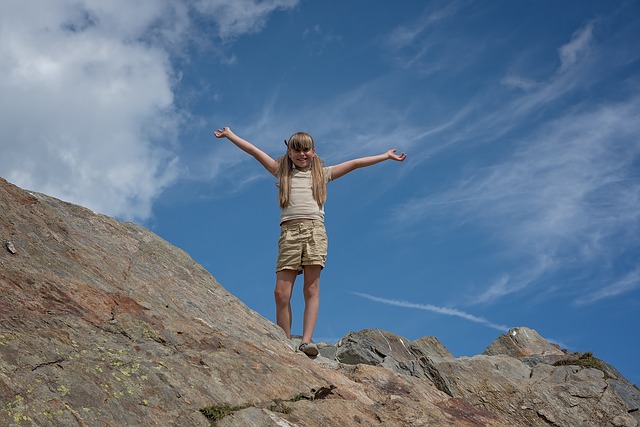Diana Winston recently conducted a meditation podcast on the theme of Gratitude, prompted by the imminent celebration of Thanksgiving in the USA. Diana, Director of Mindfulness Education at MARC, observed that as people grow in mindfulness, they become more appreciative of different aspects of their life and work. Often, we operate on autopilot and as a result so much of our life passes us by – we are not conscious of what is happening for us or how we got to where we arrived. There is so much of our life that we take for granted, especially the simplest things like being able to breathe, walk, listen and converse. Through meditation we can become more focused on, and appreciative of, the present moment.
The benefits of gratitude
The benefits of gratitude are so great that it is well worthwhile consciously building appreciation as an integral part of your life. Research in this area consistently shows that gratitude contributes substantially to the development of positive emotions such as happiness, resilience, and joy as well as the displacement of negative or “toxic emotions” such as resentment and anger that can gradually erode your sense of equanimity and contentment.
Developing gratitude through a personal reminder
It Is usually when we lose something that we begin to really appreciate what we have. For instance, one of the discs in my back collapsed in 1997, so for 18 months I was in extreme pain from sciatica – having difficulty standing and walking (and being unable to play my favourite sport of tennis). Now when I am playing social tennis, I try to appreciate the fact that I can run, hit the ball and participate in rallies. I am trying to make each mistake that I make a prompt or reminder to appreciate what I can do, rather than focus on what I did wrong when attempting to hit the ball. Developing a relevant, personal reminder (based on your life experience) is one way to build gratitude and appreciation into your daily life.
Developing gratitude through meditation
Another way to consciously develop gratitude is to practice a gratitude meditation. Diana offers one way to approach this in her meditation podcast. The steps involved are:
- Grounding yourself in your body through being conscious of your posture (the pressure of your body on the chair and your feet on the floor), and undertaking a body scan exploring points of tightness and releasing any tension that exists in places like your shoulders, jaw or arms. The grounding can be strengthened by closing your eyes or looking down and/or touching your fingers together and feeling the sensation of your bodily energy flow.
- Establishing an anchor for your meditation – this can be the experience of your natural breathing process wherever it is readily felt by you (in your chest or abdomen or through your nose), listening to sounds in your room or focusing on a particular body sensation (such as your fingers touching or your feet on the ground).
- Appreciating the present moment – Diana introduces a 15-minute period of stillness and silence in this next stage of the meditation. The basic approach is to focus on your anchor, appreciate that you can experience the positive benefits of your personal anchor (breathing, listening or feeling) and naming any distraction (e.g. “thinking”, “avoiding”, “wandering”, “complaining”) before restoring your focus to your anchor. Instead of beating up on yourself for being distracted (a normal part of the human condition), you can appreciate your capacity to be aware that you have lost your focus, that you have developed an anchor to return to, that you have the capacity to restore your focus and that, in the process, you are building your awareness muscle. [I began to appreciate my capacity to focus on an anchor after I conducted a mindfulness session in my manager development course. One of the course participants commented that the meditation component did nothing for her because her mind was so agitated that she could not still her mind at all. This person suffered from severe anxiety as a result of post-traumatic stress. Fortunately, in line with the guidelines for trauma-sensitive mindfulness, I had offered everyone the choice of not participating in the exercise if they did not want to or were unable to for whatever reason.]
- Free association – Diana suggests that you let your mind focus on something or someone that you appreciate in the present moment. If you are in an intimate relationship, you could appreciate, or be grateful for, the opportunities to share your successes or failures, the times of quietness spent comfortably together, the chance to go walking together in a pleasant environment, being able to enjoy a movie or a special location with each other, the pleasant feelings of friendship, sharing ideas and plans or the sense of support and unconditional love.
Reflection
There are so many things to appreciate in our lives and to be truly grateful for – many of which we take for granted. For instance, we can savour friendship, our achievements and rewards, the development of our children or, counterintuitively, savour being alone or experiencing boredom. As we grow in mindfulness through daily personal reminders or formal gratitude meditations, we can develop an ever-present sense of appreciation and accrue the desirable benefits of being grateful.
____________________________________________
Image by Susan Cipriano from Pixabay
By Ron Passfield – Copyright (Creative Commons license, Attribution–Non Commercial–No Derivatives)
Disclosure: If you purchase a product through this site, I may earn a commission which will help to pay for the site, the associated Meetup group and the resources to support the blog.



